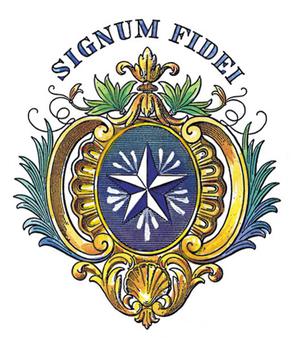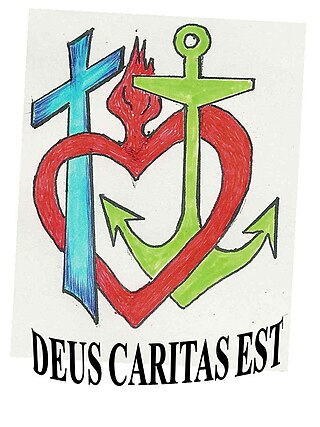Related Research Articles

Mary Patricia McAleese is an Irish activist lawyer, academic, author, and former politician who served as the eighth president of Ireland from November 1997 to November 2011. McAleese was first elected as president in 1997, having received the nomination of Fianna Fáil. She succeeded Mary Robinson, making her the second female president of Ireland, and the first woman in the world to succeed another woman as president. She nominated herself for re-election in 2004 and was returned unopposed for a second term. Born in Ardoyne, north Belfast, McAleese is the first president of Ireland to have come from either Northern Ireland or Ulster.

There have been many cases of sexual abuse of children by priests, nuns, and other members of religious life in the Catholic Church. In the late 20th and early 21st centuries, the cases have involved many allegations, investigations, trials, convictions, acknowledgement and apologies by Church authorities, and revelations about decades of instances of abuse and attempts by Church officials to cover them up. The abused include mostly boys but also girls, some as young as three years old, with the majority between the ages of 11 and 14. Criminal cases for the most part do not cover sexual harassment of adults. The accusations of abuse and cover-ups began to receive public attention during the late 1980s. Many of these cases allege decades of abuse, frequently made by adults or older youths years after the abuse occurred. Cases have also been brought against members of the Catholic hierarchy who covered up sex abuse allegations and moved abusive priests to other parishes, where abuse continued.

The De La Salle Brothers, officially named the Institute of the Brothers of the Christian Schools abbreviated FSC, is a Catholic lay religious congregation of pontifical right for men founded in France by Jean-Baptiste de La Salle (1651–1719), and now based in Rome, Italy. The De La Salle Brothers are also known as the Christian Brothers, French Christian Brothers, or Lasallian Brothers. The Lasallian Christian Brothers are distinct from the Congregation of Christian Brothers, often also referred to as simply the Christian Brothers, or Irish Christian Brothers. The Lasallian Brothers use the post-nominal abbreviation FSC to denote their membership of the order, and the honorific title Brother, abbreviated "Br."

In the Catholic Church, a religious order is a community of consecrated life with members that profess solemn vows. They are classed as a type of religious institute.

The Brothers of Charity are an international religious institute of Religious Brothers and associate members at the service of the people most in need in the field of education and health care. The institute was founded in 1807 by Peter Joseph Triest in Ghent, Belgium. He also founded three other religious congregations inspired by Vincentian spirituality. The congregation's patron saint is St. Vincent de Paul. Today the Brothers maintain a presence in 30 countries.

The Congregation of Christian Brothers is a worldwide religious community within the Catholic Church, founded by Edmund Rice.
Various individuals, courts and the media around the world have raised concerns about the manner in which cases of child sexual abuse are handled when they occur in congregations of Jehovah's Witnesses. An independent 2009 study in Norway was critical of how Jehovah's Witnesses dealt with cases of child sexual abuse but stated there is no indication that the rate of sexual abuse among Jehovah's Witnesses is higher than found in general society. The organization's stated position is that it abhors child sexual abuse.
A religious congregation is a type of religious institute in the Catholic Church. They are legally distinguished from religious orders – the other major type of religious institute – in that members take simple vows, whereas members of religious orders take solemn vows.
In the Catholic Church, a canonical visitation is the act of an ecclesiastical superior who in the discharge of his office visits persons or places with a view to maintaining faith and discipline and of correcting abuses. A person delegated to carry out such a visitation is called a visitor. When, in exceptional circumstances, the Holy See delegates an apostolic visitor "to evaluate an ecclesiastical institute such as a seminary, diocese, or religious institute [...] to assist the institute in question to improve the way in which it carries out its function in the life of the Church," this is known as an apostolic visitation.

The Rosminians, officially named the Institute of Charity, abbreviated I.C., are a Catholic clerical religious congregation of Pontifical Right for men founded by Antonio Rosmini and first organised in 1828.
The Commission to Inquire into Child Abuse (CICA) was one of a range of measures introduced by the Irish Government to investigate the extent and effects of abuse on children from 1936 onwards. Commencing its work in 1999, it was commonly known in Ireland as the Laffoy Commission after its chair, Justice Mary Laffoy. Laffoy resigned as chair in 2003 and was succeeded by Justice Sean Ryan, with the commission becoming known as the Ryan Commission. It published its final public report, commonly referred to as the Ryan report, in 2009.

The Congregation of Our Lady of Charity of the Good Shepherd, also known as the Sisters of the Good Shepherd, is a Catholic religious order that was founded in 1835 by Mary Euphrasia Pelletier in Angers, France. The religious sisters belong to a Catholic international congregation of religious women dedicated to promoting the welfare of women and girls.

As distinct from abuse by some parish priests, who are subject to diocesan control, there has also been abuse by members of Roman Catholic orders, which often care for the sick or teach at school. Just as diocesan clergy have arranged parish transfers of abusive priests, abusive brothers in Catholic orders are sometimes transferred.
The sexual abuse scandal in the Congregation of Christian Brothers is a major chapter in the series of Catholic sex abuse cases in various Western jurisdictions.
From the late 1980s, allegations of sexual abuse of children associated with Catholic institutions and clerics in several countries started to be the subject of sporadic, isolated reports. In Ireland, beginning in the 1990s, a series of criminal cases and Irish government enquiries established that hundreds of priests had abused thousands of children over decades. Six reports by the former National Board for Safeguarding Children in the Catholic Church established that six Irish priests had been convicted between 1975 and 2011. This has contributed to the secularisation of Ireland and to the decline in influence of the Catholic Church. Ireland held referendums to legalise same-sex marriage in 2015 and abortion in 2018.
The Religious Sisters of Charity or Irish Sisters of Charity is a Roman Catholic religious institute founded by Mary Aikenhead in Ireland on 15 January 1815. Its motto is Caritas Christi urget nos.
The National Board for Safeguarding Children in Ireland established in 2006 in order to develop policies that would foster the prevention of child abuse in the Catholic Church in Ireland. Its main goals are to offer advice on safeguarding best practice, to assist in the development of procedures and to monitor practices. Its members have a good deal of experience in dealing with the problem of sexual abuse. The Board has been described as "the Catholic Church's abuse watchdog".
In the Catholic Church, a religious institute is "a society in which members, according to proper law, pronounce public vows, either perpetual or temporary which are to be renewed, however, when the period of time has elapsed, and lead a life of brothers or sisters in common."
The apostolic visitation to Ireland was announced on 20 March 2010 in the pastoral letter written by Pope Benedict XVI to Irish Catholics after the publication of the Ryan and Murphy Reports on Catholic Church sexual abuse of children in Ireland in 2009. The visitation to the dioceses was carried out in the four metropolitan sees during the first few months of 2011. In addition, Timothy Cardinal Dolan of New York was appointed to conduct visits to four seminaries to review their formation programs. Members of religious institutes were appointed to visit various congregations. The visitation was essentially pastoral.

The Magdalene Laundries in Ireland, also known as Magdalene asylums, were institutions usually run by Roman Catholic orders, which operated from the 18th to the late 20th centuries. They were run ostensibly to house "fallen women", an estimated 30,000 of whom were confined in these institutions in Ireland.
References
- 1 2 Larragy, Joe (Winter 2006). "Origins and Significance of the Community-Voluntary Pillar's Entry to Irish Social Partnership" (PDF). Economic and Social Review. Dublin: 11. Archived from the original (PDF) on 14 December 2010. Retrieved 16 April 2010.
- ↑ "Questions. Oral Answers. - Combat Poverty Agency.". Dáil Éireann debates. Vol. 397. 14 March 1990. p. c.69. Archived from the original on 9 June 2011. Retrieved 21 March 2010.
- ↑ Maureen Browne, The orders behind the abuse Archived 2012-03-05 at the Wayback Machine Irish Medical News, 2 June 2009
- ↑ Kerr, Ina (28 May 2009). "Orders must split bill with State - CORI chief". Irish Independent. Retrieved 17 April 2010.
- ↑ Religious offers, education.ie.
- ↑ President McAleese addresses CORI conference. 17 April 2010.
- ↑ Legal issues block review by watchdog; Irish Times, 12 May 2011
- ↑ Vatican instructs all bishops to draft abuse guidelines; Irish Times, 17 May 2011